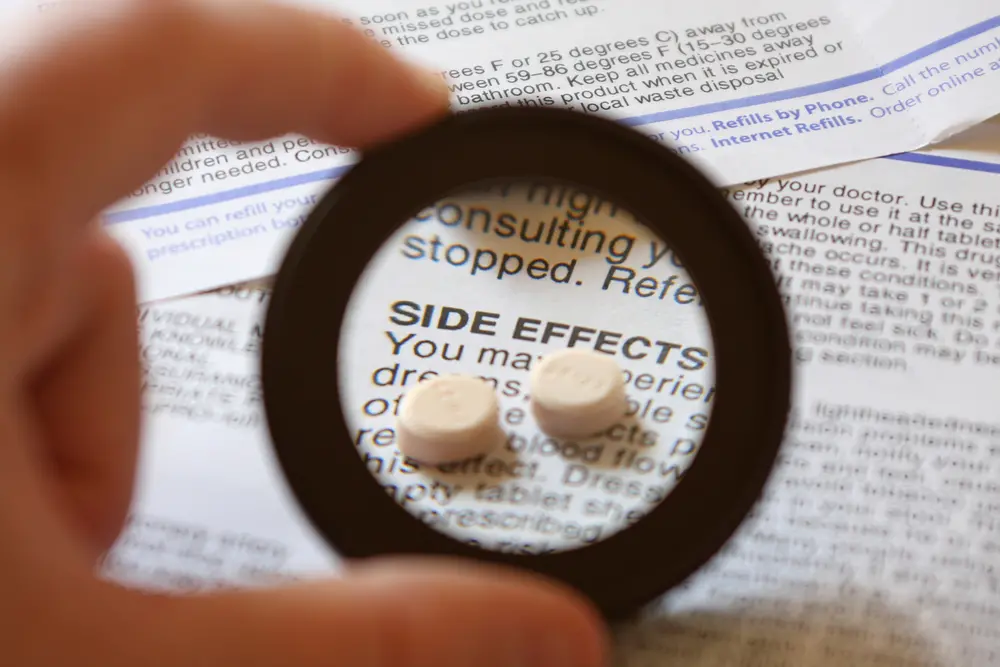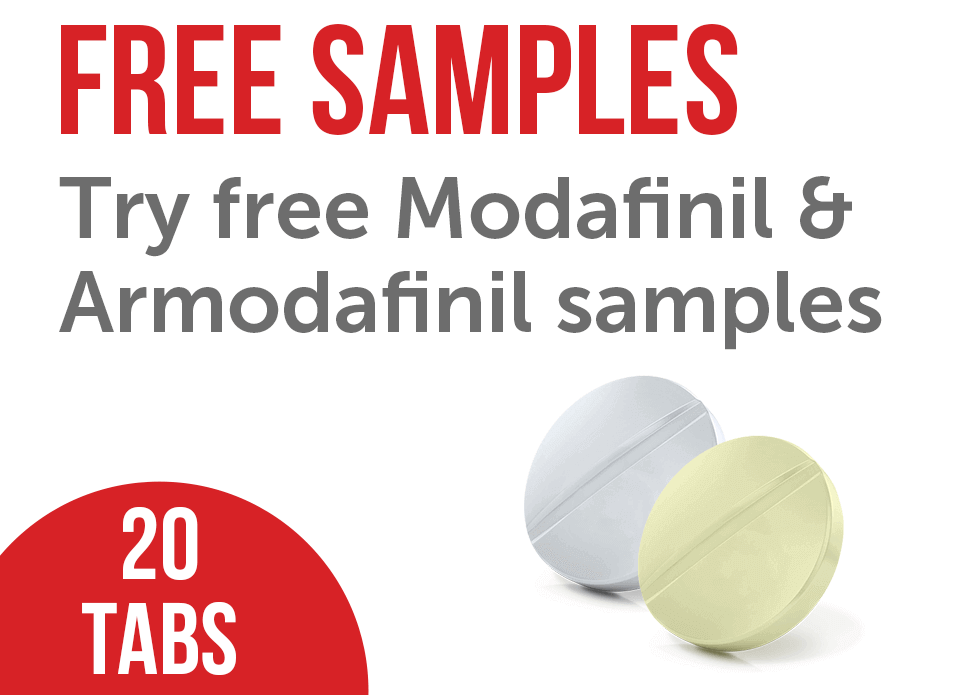Modafinil is an effective medication. It is so safe that researchers at Harvard University and the University of Oxford deemed it the “world’s first safe ‘smart drug.’” It has a low potential for addiction but is not without side effects. Although it is known that all drugs have side effects, many people looking to use modafinil for the first time particularly fear that it might affect their hearts. If you also share this concern, this article is for you.
It sheds light on everything you need to know about the drug: from its basic facts and mechanism of action to tips that can help reduce the possibility of adverse effects.
Some Facts About Modafinil
Modafinil is a popular medication employed medically to treat excessive daytime sleepiness caused by 3 major sleep disorders:
- shift work sleep disorder (SWSD);
- obstructive sleep apnea (OSA);
- narcolepsy.
It was developed in France by French neurophysiologist Professor Michel Jouvet in collaboration with Lafon Laboratories. After much research, the French healthy regulatory body approved it to be used as an experimental treatment for narcolepsy. The treatment proved effective over the years, so the United States Food and Drug Administration (FDA) equally approved it for use in 1998. Later in 2003, the FDA expanded the approval to cover treatment for OSA and SWSD [1].
Today modafinil is more commonly used off-label by healthy individuals looking to enhance their cognitive abilities and ultimately gain a competitive edge in school or at work. Although the FDA discourages its use for this purpose, hundreds, if not thousands, of people, continue to buy it because it works. Enhanced memory, 12+ hours of increased focus and alertness, and faster mental processing speed are some of the benefits people who use it report. Doctors also prescribe modafinil off-label to patients with attention-deficit/hyperactivity disorder (ADHD), as it helps calm them.
Modafinil comes in dose strengths of 100 mg and 200 mg. It is commonly marketed under the brand name Provigil. Generic versions are also available; some of the popular brands include ModaXL, Modavinil, Modalert, Modvigil, and Modaheal.
Some of the common side effects associated with this drug include headache, nausea, upset stomach, runny nose, and flushing. While it is normal for some first-time users of the drug to experience these mild adverse reactions, it is advisable to seek medical attention if they persist or if more serious ones such as palpitations, chest pain, and hallucinations, among others, arise.
How Does Modafinil Affect the Heart?
Medications that belong to the stimulant drug class are known to have an effect on the heart. Although modafinil is not a stimulant, it has stimulant-like effects. This means that it might be capable of affecting the heart, but it is not all set in stone.
Several studies have been conducted to determine the possibility, likelihood, and how modafinil and other stimulants or stimulant-like drugs can affect the heart. One of the studies indicates that the drugs can cause the heart to beat faster and ultimately raise the blood pressure (BP) above safe limits, which may then lead to complications [2]. While many of the studies attest to the possibility of the drug affecting heart rate, none of them sheds light on exactly how it occurs.
Can Modafinil Cause a Heart Attack?
Yes, modafinil can cause a heart attack. If you take a close look at the list of modafinil’s possible side effects, you will find the following symptoms [3]:
- arrhythmia, racing or irregular heartbeat;
- chest pain;
- agitation;
- shortness of breath.
Fortunately, not everyone who takes the drug is liable to experience a heart attack or any of the above negative after-effects. In most cases, it is individuals with left ventricular hypertrophy, severe coronary artery disease, hypertension, structural heart abnormalities, or those with a history of unstable angina who are likely to suffer a heart attack [4][5].
Furthermore, it is worth noting that misusing modafinil (for example, taking an overdose) or taking it alongside other drugs that increase blood pressure without regard for possible interaction can increase the risk of experiencing a heart attack. A study conducted in 2005 involving 12 healthy participants indicated that taking 400 mg of modafinil daily led to increased blood pressure and the risk of cardiovascular challenges [6].
The recommended dosage for modafinil is 200 mg to 400 mg once per day, only 1 to 3 times per week. If you do not have an underlying heart problem, don’t combine modafinil with medications that increase BP, and don’t take it incorrectly, it is highly unlikely that this drug will cause you a heart attack.
Remember to consult your doctor before starting treatment with modafinil.
Tips to Reduce the Side Effects of Modafinil on the Heart
Below are some tips that, if adhered to, could help reduce the chances of experiencing heart-related side effects of modafinil.
Take the Drug As Prescribed
A modafinil overdose is known to increase the risk of unnecessary side effects. The recommended daily dosage is 200–400 mg, and it should only be taken 1–3 times per week to prevent tolerance. It is worth noting that taking a higher dose is considered overdosing and doesn’t provide any added benefits.
Avoid Drug Interactions
Modafinil interacts with certain other medications when combined with them. While an interaction can cause one or more of the drugs taken concomitantly to be less effective, it can also increase the risk of heart failure. Avoid stimulants, drugs that increase blood pressure, other “smart drugs,” etc., when taking modafinil, as such a combination can damage your health.
Do well to consult a doctor and refer to a comprehensive list of drugs that interact with it to be on the safe side.
Be Aware of Your Health Status
Do you have an underlying medical condition such as hypertension or coronary artery disease, among other heart-related problems? If yes, you should steer clear of using modafinil. This will save you a lot of problems. Note that it may be possible to still use the drug even while suffering from any of the aforementioned health problems. However, it must only be used under the close supervision of a doctor.
Seek Medical Advice
Modafinil might not be the best treatment option for you. Factors such as your medical history, possible interactions, age, sex, weight, or allergy to one of the inactive ingredients contained in the drug can make it unfavorable for you. The best way to find out if you should use it in the first place is to consult a doctor before popping the pills.
Conclusion
The answer to the commonly asked question “Is modafinil bad for your heart?” is no, not exactly. You shouldn’t have any fears using it if you have no underlying health issues or a heart condition and if you take it as prescribed and avoid taking it alongside blood pressure medications or other powerful stimulants.
If you are healthy and under the age of 65, you may use modafinil to treat symptoms of a sleep disorder. While using it, be sure to halt treatment if you experience any negative after-effect or symptom that hurts, especially if it persists.
Be sure to consult a doctor before starting treatment with modafinil or any other drug.
References
- Modafinil. Retrieved: September 28, 2022. Wikipedia.org.
- How Stimulants May Affect Your Heart. By Julie Corliss, Executive Editor, Harvard Heart Letter. Retrieved: September 28, 2022. Health.harvard.edu.
- Modafinil Side Effects: Common, Severe, Long Term. Medically reviewed by Drugs.com. Retrieved: September 28, 2022. Drugs.com.
- Alertness Medication Should Be Used with Caution in Patients with CVD. By Susan Jeffrey. Retrieved: September 28, 2022. Medscape.com.
- Modafinil Disease Interactions. Retrieved: September 28, 2022. Drugs.com.
- Modafinil Elicits Sympathomedullary Activation. By Indu Taneja, Andre Diedrich, et al. Retrieved: September 28, 2022. Pubmed.ncbi.nlm.nih.gov.








